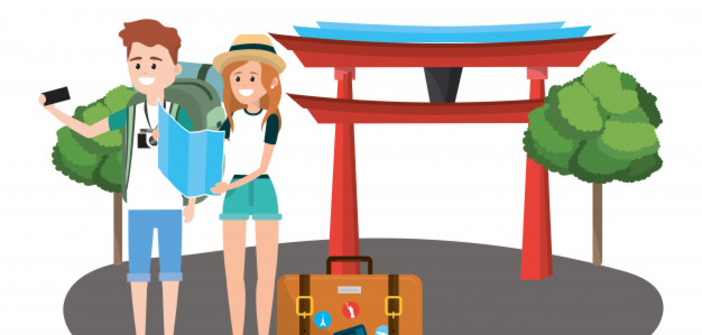The European Commission is attempting to save the summer season, crucial for the tourism industry which alone accounts for 10% of the European GDP, or 1,400 billion euros.
The team led by Ursula von der Leyen is doing this by approving a series of recommendations and guidelines so that governments coordinate, rather than proceed in a random order – increasing health and economic risks – as was done with the closure of borders at the start of the pandemic.
The stakes for Brussels are very high, so much so that in the future Recovery Fund financed by European bonds, one-fifth of the resources could be devoted to tourism. But in the meantime, the priority is to save the summer and avoid – or limit – supply chain failures.
According to the World Tourism Organization, the sector will lose between 60 and 80% of revenues compared to 2019, with losses between 840 and 1,000 billion euros. The coming months will be crucial for the survival of the tourism industry in Europe, which needs as much support as possible: the European Commission estimates that losses on the continent have already reached 50% for hotels and restaurants, 85% for tour operators and travel agencies, and 90% for cruises and airlines. Generally, the drop in bookings is between 60 to 90% compared to last year. There are 6 million jobs at risk.
Border Reopening
The European Commission’s maxi package begins with border reopening, which must be coordinated. The currently mandatory quarantines in most countries for those arriving from another EU partner must be eliminated in a coordinated and gradual manner between epidemiological zones with similar risks, and when health systems have adequate capacity to handle any increase in infections attributed to tourists.
The ECDC will continuously update the European map of infections, based on which it will be possible to open up to travel. This is an attempt to avoid creating exclusive tourist corridors between certain member states, which could discriminate, particularly against Italy, more affected by the pandemic than others.
Health Passports
For now, however, the idea of a health passport, requested by several governments including Italy, has not disappeared, still aiming to prevent agreements between certain states that would exclude others: for Brussels, there is no scientific basis for declaring a person immune.
Real-Time Update Site
To facilitate traveler mobility, the European Commission proposes creating a single site for the entire continent with real-time information to inform tourists about the border situation, infections in different regions of the Union, healthcare facilities in various tourist sites, and the availability of hotel beds and restaurant tables. A way to avoid crowds, even by calculating visiting times at a museum or an archaeological site.
Tracking Application
Brussels is also pushing to make national applications interoperable or to enable them to communicate and allow tourists to use them in all EU countries for tracking infections and containing new outbreaks. This is a key point for enabling the resumption of overseas travel. Apps and artificial intelligence can also help the population maintain social distancing between people.
Recommendations
Then there are specific recommendations for various sectors. Brussels asks restaurants and bars to keep tables at least two meters apart, to avoid queues at the counter or buffets. Hoteliers are asked to stay in contact with guests even after their departure so they can report any infections registered during their stay and trigger containment measures. Hotel staff must be trained to ensure social distancing among guests, hygiene, and space management.
On the beach, umbrellas and sunbeds must be positioned at least two meters apart (obviously, the rule does not apply to people from the same family). For all accommodation facilities, it will be essential to carry out regular disinfections, including ventilation systems.
Transport
Regarding transport, masks will be mandatory for staff and passengers. In urban areas, it is requested to extend opening hours to reduce overcrowding and to use stickers for distance between users. Brussels calls for the automatic opening of doors to prevent passengers from pressing the stop button. Shared mobility is not stopped, although regular disinfection of cars, scooters, bicycles, and scooters must be ensured.
Refunds
Finally, to avoid liquidity crises and chain bankruptcies of tourism companies, Brussels asks governments to support the reimbursement of canceled trips as Covid also allows the possibility of offering vouchers to recuperate vacations later. However, the customer will have the final say between a refund and rescheduling the stay.
On Wednesday, Brussels encouraged the 27 countries of the Union to reopen their internal borders to save the summer vacations of millions of Europeans and prevent a collapse of the tourism sector, severely impacted by the coronavirus.
This sector, crucial for the Union’s economy as it accounts for 10% of its GDP and 12% of jobs, looks forward with anxiety to the summer season after already suffering for two months from lockdown measures implemented to curb the pandemic. After many European countries isolated themselves, the European Commission wants to encourage them to gradually lift the controls and restrictions put in place to deal with the coronavirus.


